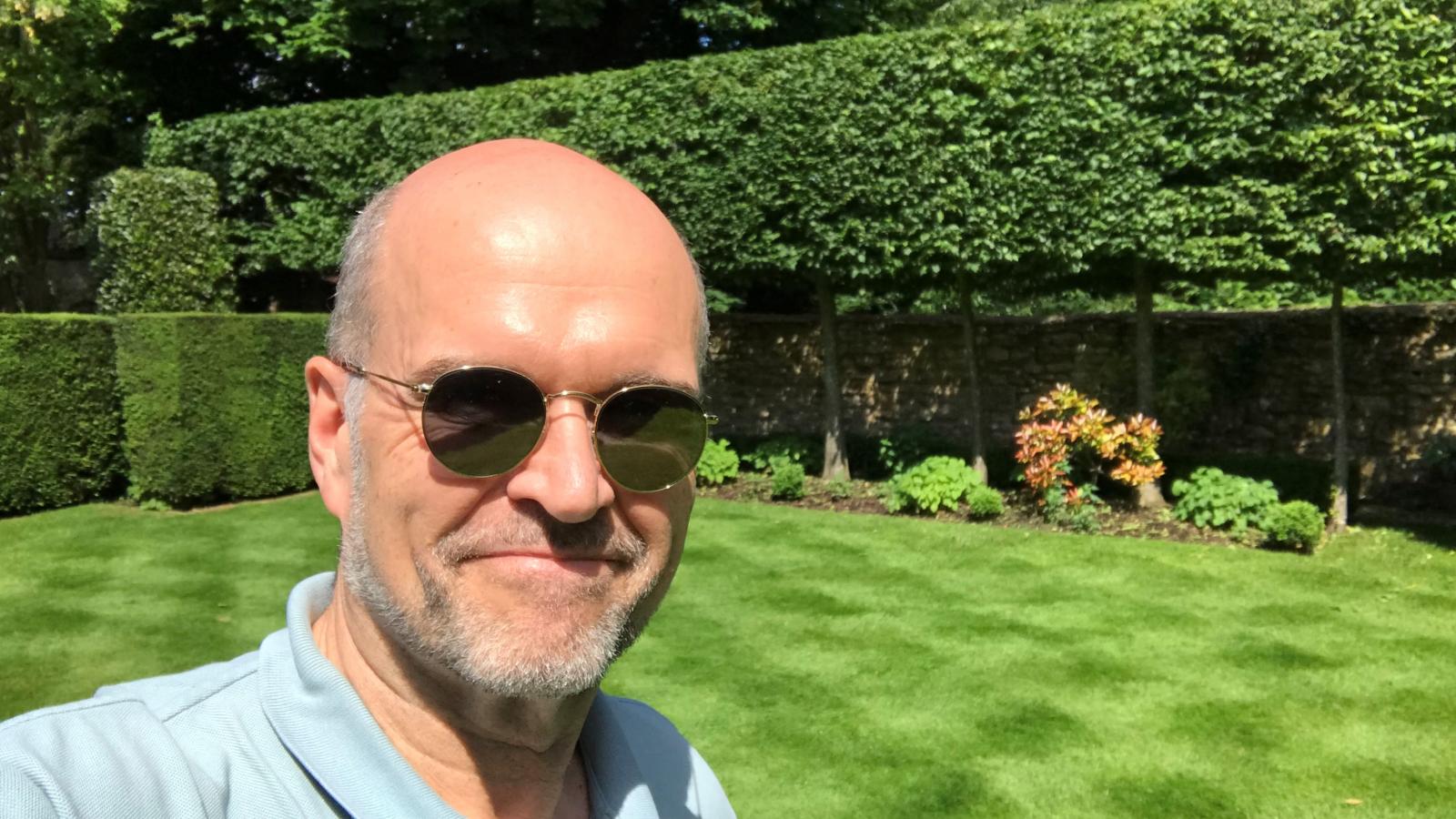Ask Brian Kelly about the moment when it all came together for him—his communion with architecture, the beauty of the built world and the certainty of his future—and he’ll relate a story of a young, jetlagged college student, fresh off an airplane from New York, stepping into the afternoon light of the Pantheon’s oculus.
“When I was in high school, I had this impressionistic view of Rome,” says Kelly. “I knew it was important but I didn’t know why it was important to architecture. Walking through the portico of the Pantheon and into that rotunda was the most awesome experience, in the traditional sense of the word. It makes you feel like you’re in a relationship with the Cosmos. It’s bigger than life. And it was the gateway drug, I think.”
For nearly four decades, Kelly has returned to Rome and other parts of Italy, often with students in tow, to share the gospel according to Bramante, Raphael and Michelangelo. He has watched the immersive experience of sketching, studying and living in another country transform legions of students, and has witnessed the indelible mark it makes on their professional and personal lives. It is the inspiration behind Kelly’s decision to establish an endowment at the University of Maryland, which will fund need-based travel scholarships that offer special consideration to students who have never traveled outside of the United States.
“I’ve been here longer than any place else in my life,” he says on his decision to establish the fund at Maryland. “I just feel it can do the most good here. Over the years I have come to realize that it really makes a huge impact on our students in their life and their experiences.”
Maryland has been Kelly’s home for more than 30 years, but it is not his alma mater; he obtained his undergraduate degree at the University of Notre Dame and his master’s at Cornell. Since arriving at Maryland, he has taken students abroad all over Europe, but Italy continues to be his home base. In 2017, he was instrumental in establishing an in-residence program in Florence.
“Forget broadening horizons, it just exploded my horizons,” said Michael Way, Jr. (M.ARCH ’02), a Southeast D.C.-native who travelled with Kelly to England on a scholarship provided by alum and Kea Professor Mark McInturff. “It was the first time I had ever been out of the country. Growing up, my parents put travel money into school.”
Way remembers that, until his experience traveling with Kelly, he suffered from “a strong case of imposter syndrome” at UMD; he knew he wanted to be an architect since he was 10, but his classmates’ seemingly effortless drawing skills were intimidating. It took a centuries-old city and long conversations about architecture with Kelly to convince him he was in the right place.
“That time helped me see that I knew more than I thought I did,” he says. “That it’s not just about drawing excellence but about communicating those ideas and concepts. To this day, I use that understanding in my work to enable other people and show them that they can do more than they think.”
Traversing the Italian cityscapes to sketch as a group is an exercise Kelly has integrated over the years; drawing side-by-side with their professor, Kelly says, helps students realize there isn’t any magic to it. But he also maintains the real takeaway is less about honing their design skills and more about slowing down, taking stock in what is around you and becoming an active observer.
“The school’s Rome program changed my life,” says Jordan Goldstein, Principal & Global Director of Design at Gensler. “It was my first time overseas and I didn’t know what to expect. The way that Brian and team turned the piazzas and streets of Rome into our everyday classrooms was truly extraordinary. I learned to see the world through a different lens that summer and it had a profound impact on the architect that I am today.”
While study abroad is on hold because of the pandemic, a current use fund will allow students to take advantage of the scholarship as soon as the programs reconvene. Kelly hopes the fund will inspire “ah-ha” moments in students for years to come.
“To me that’s what makes it all worthwhile,” he says. “That’s what I live for.”

